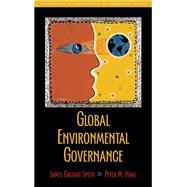
| Preface | xi | ||||
| Chapter I Introduction: Toward Planetary Stewardship | 1 | (11) | |||
|
3 | (6) | |||
|
9 | (3) | |||
| Chapter II Global-Scale Environmental Challenges | 12 | (40) | |||
|
13 | (3) | |||
|
16 | (27) | |||
|
19 | (2) | |||
|
21 | (1) | |||
|
22 | (7) | |||
|
29 | (2) | |||
|
31 | (1) | |||
|
32 | (3) | |||
|
35 | (1) | |||
|
36 | (3) | |||
|
39 | (2) | |||
|
41 | (2) | |||
|
43 | (1) | |||
|
44 | (8) | |||
| Chapter III From Stockholm to Johannesburg: First Attempt at Global Environmental Governance | 52 | (30) | |||
|
56 | (5) | |||
|
61 | (8) | |||
|
69 | (5) | |||
|
74 | (2) | |||
|
76 | (2) | |||
|
78 | (4) | |||
| Chapter IV Environmental Accord: Treaties and International Environmental Law | 82 | (25) | |||
|
82 | (5) | |||
|
87 | (9) | |||
|
88 | (4) | |||
|
92 | (3) | |||
|
95 | (1) | |||
|
96 | (1) | |||
|
96 | (7) | |||
|
103 | (4) | |||
| Chapter V Key Actors, Expanding Roles: The United Nations, International Organizations, and Civil Society | 107 | (18) | |||
|
107 | (7) | |||
|
114 | (5) | |||
|
119 | (2) | |||
|
121 | (4) | |||
| Chapter VI Paths to the Future: A Second Attempt at Global Environmental Governance? | 125 | (26) | |||
|
127 | (7) | |||
|
128 | (3) | |||
|
131 | (1) | |||
|
131 | (3) | |||
|
134 | (4) | |||
|
134 | (2) | |||
|
136 | (1) | |||
|
136 | (2) | |||
|
138 | (13) | |||
|
139 | (2) | |||
|
141 | (2) | |||
|
143 | (1) | |||
|
144 | (3) | |||
|
147 | (4) | |||
| Questions for Discussion | 151 | (4) | |||
| References | 155 | (4) | |||
| Further Reading | 159 | (8) | |||
| Index | 167 |
The New copy of this book will include any supplemental materials advertised. Please check the title of the book to determine if it should include any access cards, study guides, lab manuals, CDs, etc.
The Used, Rental and eBook copies of this book are not guaranteed to include any supplemental materials. Typically, only the book itself is included. This is true even if the title states it includes any access cards, study guides, lab manuals, CDs, etc.